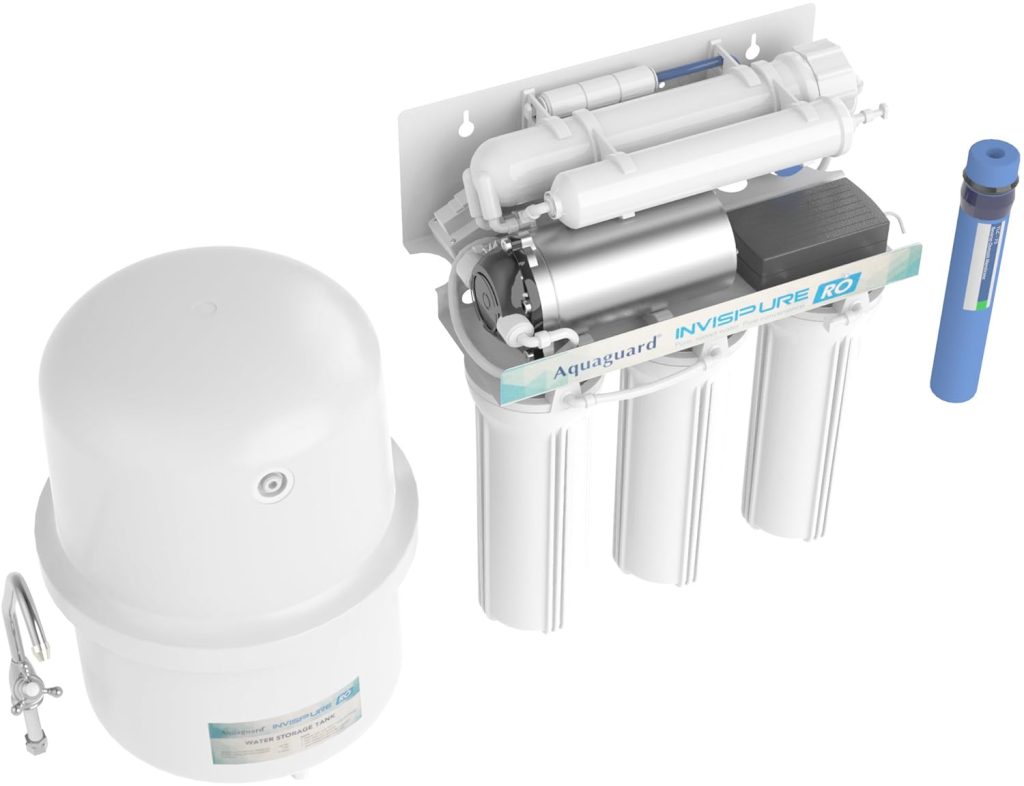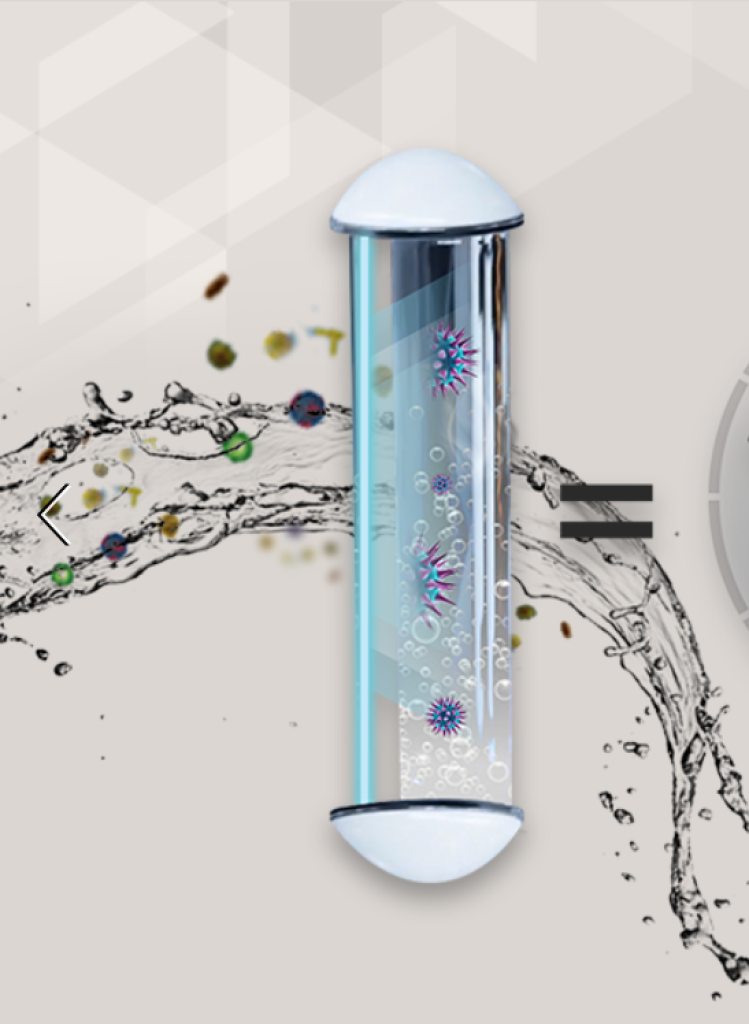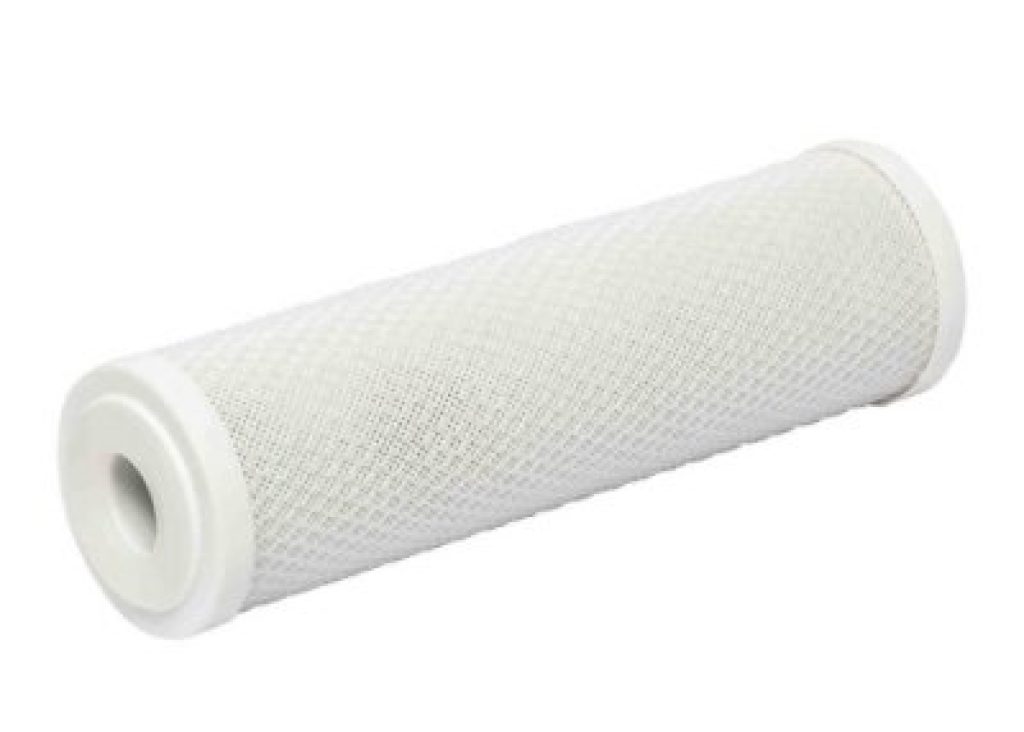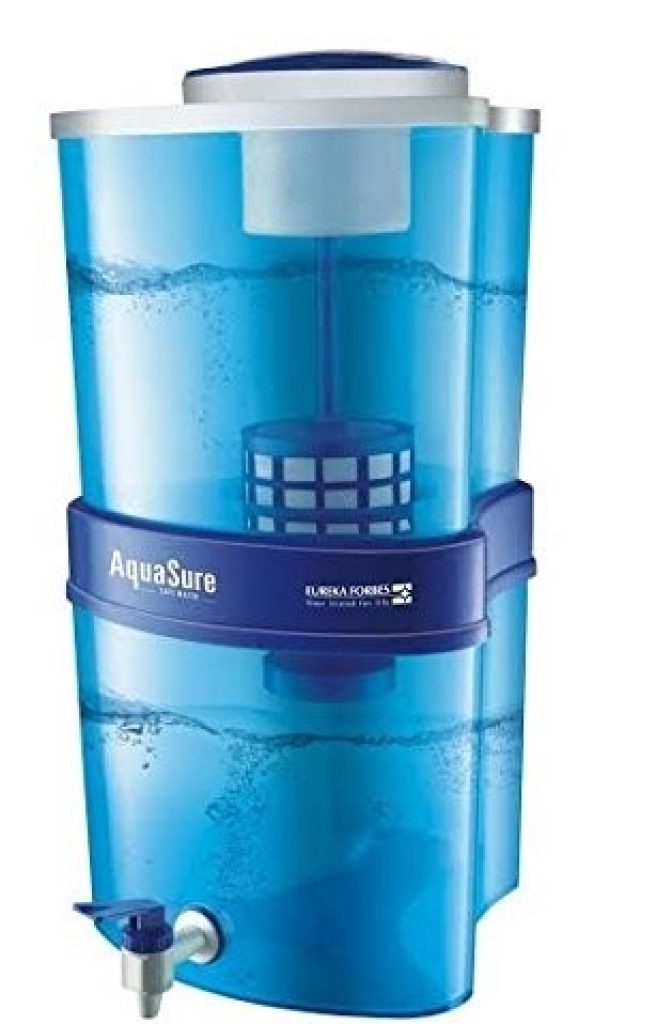Nowadays, water filters for home are very necessary, Water filter protects us from water borne diseases. water gets polluted due to contaminated water coming into the rivers through various means from industrial, domestic or commercial areas. Polluted water causes water-borne diseases. To protect family health, we should have water filter for home use.
There is various type of water filter is available for home use in the market, we can select the water filter for home use according to the quality of water that coming of home, your budget, and your specific filtration needs. Here are some common types of water filters for home use:
Table of Contents
Water filters for home use
1.Reverse osmosis filter:
The Reverse osmosis filter is also known as a RO filter. It is used to remove the impurities and heavy particles present in the water. A semipermeable membrane is contained in this filter. This semipermeable membrane is a very thin membrane through which the water is purified. It purifies water by removing heavy particles from its, Ro filter mainly removes the following impurities:
Dissolved minerals: like salt, fluoride, and lead
Chemicals: like chlorine, pesticides, and herbicides
Microorganisms, like bacteria and viruses.
Here’s an image of a reverse osmosis filter system.

Image Source-Amazon\Eureka
How does a Reverse osmosis filter work?
The process of purifying water through a RO filter is very simple. In this process, the water is passed through the semipermeable membrane with very high pressure, due to which the impurities and heavy particles present in the water, such as salt and lead, are stopped by the semipermeable membrane. Only pure water passes through this semipermeable membrane and gets collected on one side. Where impure or contaminated water passes out from the other side.
What is the greatest benefit of using the Reverse osmosis filter?
1. Provide very pure water
Ro filters are extensively used nowadays because they purify water very efficiently. It provides you with pure, potable water by removing the impurities and harmful heavy particles present in the water.
2. Improves taste and odor
If we live in places where the water is very foul-smelling or there are a lot of chemicals mixed in the water, then a RO filter can be very beneficial because it affects the taste and smell of the water.
3. Protect against waterborne disease
Since the efficiency of the RO filter is that it removes the impurities and heavy elements present in the water, it helps in protecting us from waterborne disease.
Things to consider when using a Reverse osmosis filter?
1. More expensive
Normally RO filters are more expensive compared to other filters.
2. Maintenance cost
RO filters have to be maintained from time to time, which incurs expenses.
3. Water wastage
In the process of purifying water in an RO filter, rejected water also comes out; that is, the entire water is not purified in it; a part of the water comes out in the form of rejected water, which causes wastage of water.
4.Remove minerals
When the RO filter purifies water, it also removes some useful substances present in the water, like calcium and magnesium.
Overall, a RO filter is a good option to purify water if you consider buying it, as it helps protect us from waterborne diseases. However, it is important to consider the benefits and drawbacks before deciding if an RO filter is right for you.
2.Ultraviolet water filter:
A Ultraviolet filter is also known as an UV filter. It provides pure water by killing harmful bacteria, viruses, and protozoa present in water. A UV filter uses ultraviolet light to purify water.
A good UV filter is capable of killing the following microorganisms, including:
Bacteria, such as E. coli and Salmonella
Viruses, such as Hepatitis A and rotavirus
Protozoa, such as Giardia and Cryptosporidium
Here’s an image of an ultraviolet filter system:

Image Source- Amazon\Eureka
How does an Ultraviolet filter work?
The UV filter has a UV chamber in which a UV lamp and quartz sleeves are installed. When water passes through this chamber, the ultraviolet rays emanating from the UV lamp located in the chamber disturb the DNA of microorganisms such as bacteria and viruses present in the water. So that these microorganisms become incapable of reproducing and these bacteria and viruses become harmless.
What is the greatest benefit of using the Ultraviolet filter?
1.Provide safe and effective water
A good UV filter is able to kill the microorganisms present in the water with great efficiency and provides us with pure water. It purifies the water without adding any chemicals to it.
2.Maintenance cost
The maintenance cost of a UV filter is much less than that of an RO filter. Some minimum cost has to be paid for the maintenance of the UV filter. Maintenance has to be done every one or two years
3.Environmen friendly
UV filters are not any kind of harmful waste product; hence, we can also call them environment-friendly filters.
Things to consider when using an Ultraviolet filter?
1.Unable to remove heavy particles
A UV filter is capable of killing the microorganisms present in the water, but if the water coming to your house contains heavy particles, then it is unable to remove the heavy particles present in the water.
2.Water clarity
If the water coming into your house is dusty or cloudy, then you may have to apply a pre-filter before the UV filter.
Overall, a UV filter is a good choice for you if the water coming to your house does not contain heavy particles; its maintenance cost is also relatively low; and it is capable of providing safe water.
But again, it is important to consider the benefits and drawbacks before deciding if an UV filter is right for you.
3.Active Carbon Filter:
This filter is mainly used to remove chlorine, organic chemicals, and odors present in water and to improve the taste of water, but it is unable to remove bacteria, viruses, or heavy metals present in water.
Active carbon filter removes the following impurities.
Chlorine, sediment, volatile organic compounds (VOCs), bad taste, and odor from water
Here’s an image of an ultraviolet filter system:

Image Source- Amazon
How does a Active carbon filter work?
If you want to understand the working of Active carbon filter, then You have to imagine that you have a sponge, and this sponge has many small holes. If you fill these small holes with millions of particles of charcoal, each particle also has even smaller holes. So, this sponge will work like active carbon.
When impure water passes through this sponge, the impure particles in the water, such as chlorine and chemicals, get attracted to these holes. The attraction of impure particles towards these pores is a natural process, and this natural process is called ‘adsorption’. It is said that when these impure chemical particles pass through these holes, they get trapped in them, and only pure water can pass through these holes, so we get pure water.
What is the greatest benefit of using an Active carbon filter?
1.Remove chlorine
Active carbon filter are mainly used to remove chlorine present in water and chloramines.
2.Improve taste and odor
Active carbon filter is capable of eliminating organic compounds and chlorine from water so it can improve taste and remove odor.
Things to consider when using an Active carbon filter?
1.Filter capacity
Active carbon filters have limited capacity for adsorbing contaminants, so they need to be periodically replaced based on water usage and contaminant levels.
2.Water filtration rate
The water filtration rate of active carbon filter is slow, so it takes time to purify the water.
3.Heavy metals and bacteria
Active carbon filters are primarily used to remove organic contaminants, but it is not capable of eliminating heavy metals, bacteria, or viruses.
4.Certification
Look for NSF-certified filters that meet specific standards for contaminant removal and material safety.
Overall, if you want to remove bad smells from water and improve the taste of water, so an active carton filter can be a good option for you. It is capable of removing chlorine and some common contaminants from water, but if you want comprehensive health protection, then you should also consider installing some other filters along with the Active Carbon filter. so that you can remain completely safe from water borne disease.
4.Gravity-based water filter:
This water filter is a low-budget and simple water filter that was first used on a wide scale. It is capable of removing bacteria, protozoa, and some chemical elements present in water. This water filter uses the force of gravity. The specialty of the filter is that it does not require electricity or a pump to work.
A gravity-based water filter removes the following impurities:
Sediment, bacteria, and some chemicals
Here’s an image of a gravity-based water filter system:

Image Source – Amazon\Eureka
How does a gravity-based water filter work?
There are two chambers in the gravity-based water filter. The first chamber is on the upper side, where the dirty water remains, and the second chamber is on the lower side, where the pure water is collected. A filter medium is placed between the two chambers. This filter media is usually It is made of ceramic or hollow fiber. When this contaminated water is poured into the upper chamber, due to the force of gravity, the water tries to go to the lower chamber. When the water passes through the filter media located between the two chambers, it passes into the lower chamber. When it passes through the filter media, it stops the bacteria, protozoa, and some chemical substances present in the water from going down, due to which pure and potable water reaches the lower chamber.
What is the greatest benefit of using a gravity-based water filter?
1.Inexpensive filter
This filter is very simple and inexpensive and does not require electricity or a pump, making it ideal for capping, travel, or emergency situations.
2.Light weight and compact design
It is easy to use due to its lightweight and compact design. It requires very little maintenance and only requires cleaning of the filter media.
Things to consider when using a gravity-based water filter?
1.Water flow rate
The filtration rate of water is slow; that is, it takes time for the water to be filtered.
2.Unable to remove heavy metals
This water filter is unable to remove heavy metals and some chemical impurities present in water.
Here we have given you information about some common water filters which are commonly used in homes. The most commonly used filters in homes are RO and UV. You can buy a good filter as per the quality of water coming into your house, your budget and your specific filtration requirement and protect your family from water borne diseases. Hope you liked this article Water Filters for Home.
